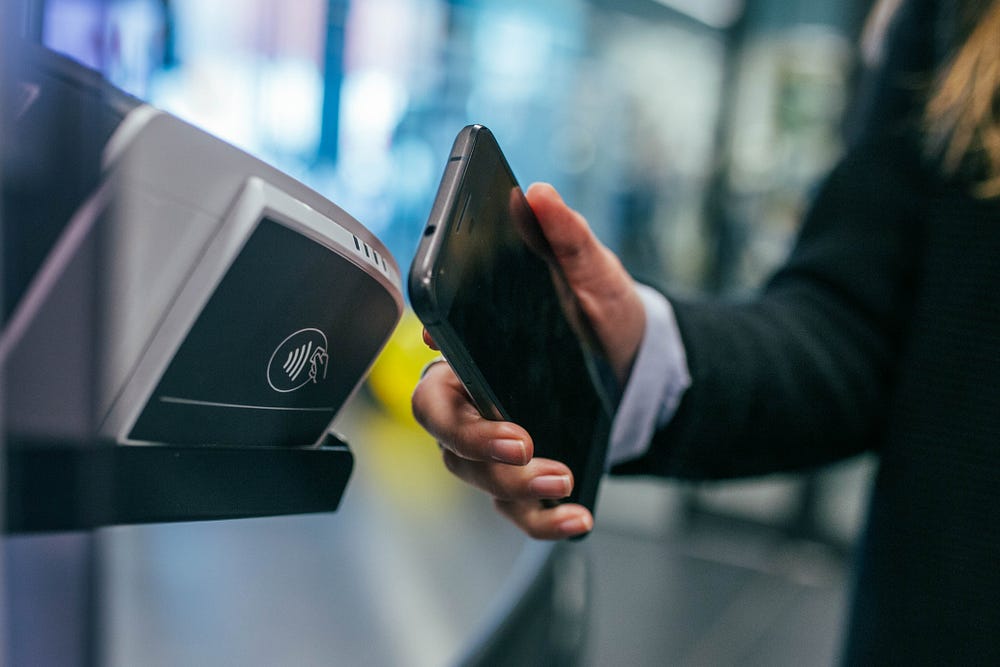Going cashless: The rise of government-backed digital currencies
 |
| Photo by Jonas Leupe on Unsplash |
"Hold on to those bills in your wallet. They may become a souvenir and history lesson for your children one day."
Tech
companies specialising in mobile peer-to-peer payments have helped push
the reality of a cashless society to the mainstream. Venmo by PayPal,
Alipay by Ant Financial, WeChat Pay by Tencent, and Go-Pay by Go-Jek are
some of the services offered by tech giants to enable cashless
transactions for billions in three of the four most populous countries
across the globe.
Governments are also taking steps to advance the cashless narrative. The Singaporean government, for example, aims to reduce cash transactions
by supporting several digital payments initiatives. This includes a
nation-wide electronic payments system — ‘PayNow’ — implemented by the
Association of Banks in Singapore (ABS). Since the launch of PayNow, the
transactional value of e-payments in the country has grown by more than
S$10 billion a year, while ATM cash withdrawals have declined by more
than S$300 million within the same timeframe.
The
city-state is also experimenting with a central bank-issued
SGD-equivalent digital currency built on distributed ledger
technology — a project undertaken by the Monetary Authority of Singapore
termed Project Ubin.
At
a recent financial tech conference, International Monetary Fund
Managing Director Christine Lagarde presented the argument for
governments to issue digital currencies as a means to achieve public policy goals which private companies are less motivated to achieve.
“Having central banks issue digital currency can bring about financial inclusivity, better security, and consumer protection, as well as allay privacy concerns.”
Digital
currencies can be designed by central banks for user identities and
transaction data to be authenticated and adhering to due diligence
procedures. Lagarde also proposed that central banks should consider
partnering with private companies and startups to invent innovative
financial solutions.
“The advantage is clear. Your payment would be immediate, safe, cheap, and potentially semi-anonymous. And central banks would retain a sure footing in payments. In addition, they would offer a more level playing field for competition, and a platform for innovation. Meanwhile, your bank or fellow entrepreneurs would have ensured a friendly user experience based on the latest technologies.
Let’s put it a different way: the central bank focuses on its comparative advantage — back-end settlement . Financial institutions and start-ups are free to focus on what they do best — client interface and innovation. This is public-private partnership at its best.”
The rise of decentralised cryptocurrencies
Whether
you love it or hate it, it is highly likely that government-backed
digital currencies will start to emerge in economies both strong and
weak, as the benefits will prove too enticing for the governments to
ignore.
While
that may sound like bad news for privacy-minded cypherpunks and
anti-establishment folk, the creation of government-issued digital
currencies might just be the catalyst to the rise of decentralised
cryptocurrencies. The future of money could be a reality in which
cryptocurrencies exist legitimately alongside digital currencies.
When
solutions allow for digital currencies to be exchanged with
cryptocurrencies seamlessly and inexpensively, cryptocurrencies like
Bitcoin can be recognised and used as the internet’s native currency. It
can then facilitate online activities like e-commerce, trading, and
remittance.
We may even find ourselves tapping into a new source of
immense economic potential when it becomes viable to include billions of
unbanked people into the global gig economy. Where inclusivity of this
demographic was challenging due to the lack of proper banking and credit
infrastructure, finding remote employment with mobile wallets,
cryptocurrencies, and digital currencies is now an everyday possibility.
On this note, Jack Dorsey, CEO of Twitter and co-founder of mobile payments platform Square, believes that Bitcoin is the best candidate for the internet’s native currency.
A
global currency will allow him to “enable more access [to financial
services], serve more people, and move much faster around the world.”
Speaking with Joe Rogan on the latter’s podcast, he expressed his
enthusiasm and belief in Bitcoin taking on the role of a global
currency:
“Bitcoin was born on the internet, tested on the internet, and is of the internet. When you think about the internet as a country, as a market, as a nation… It’s going to have its own currency. And what’s interesting about the internet as a nation — it’s the whole world. So, the whole world gets one currency. It gets one thing to communicate in. And that to me is just so freeing, and so exciting.”
The
financial revolution is inevitable. Cryptocurrencies aren’t going
anywhere. In this very moment, governments and tech companies seem to be
pushing every citizen with a smartphone towards a cashless future. So
hold on to those bills in your wallet. They may become a souvenir and
history lesson for your children one day.
By Alan Seng

Comments
Post a Comment